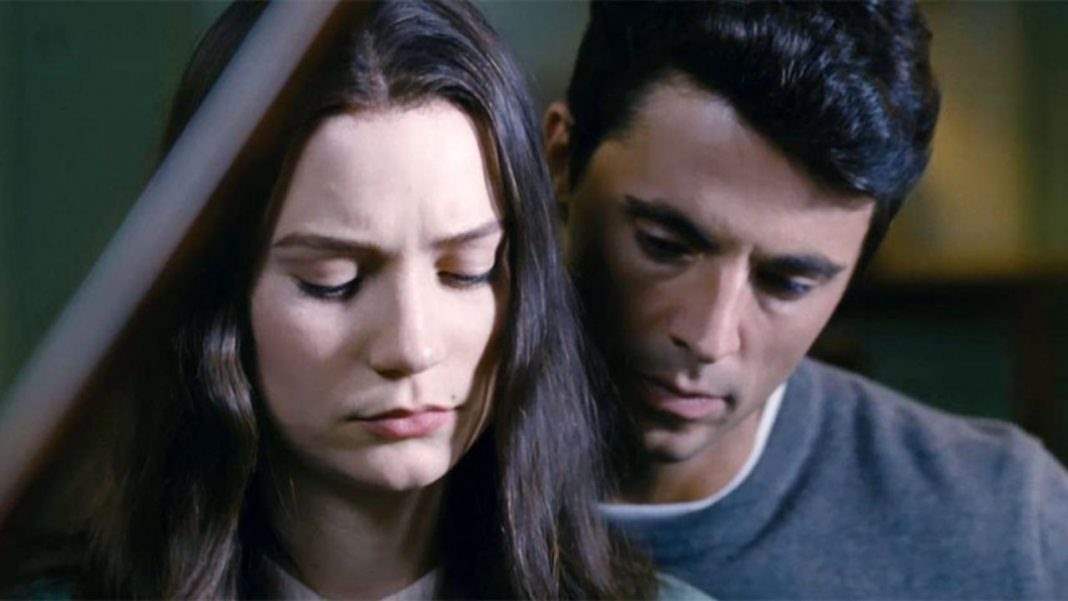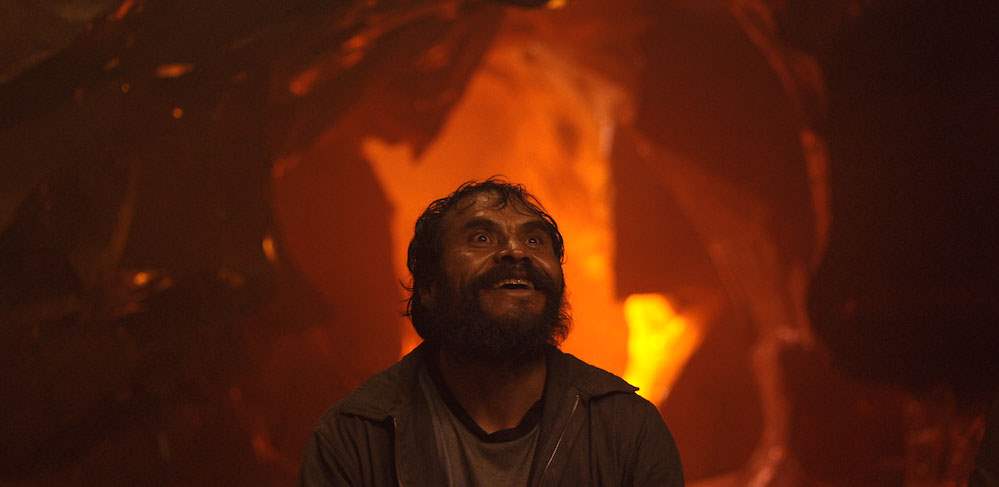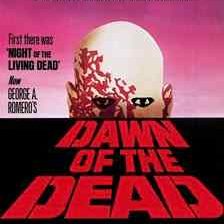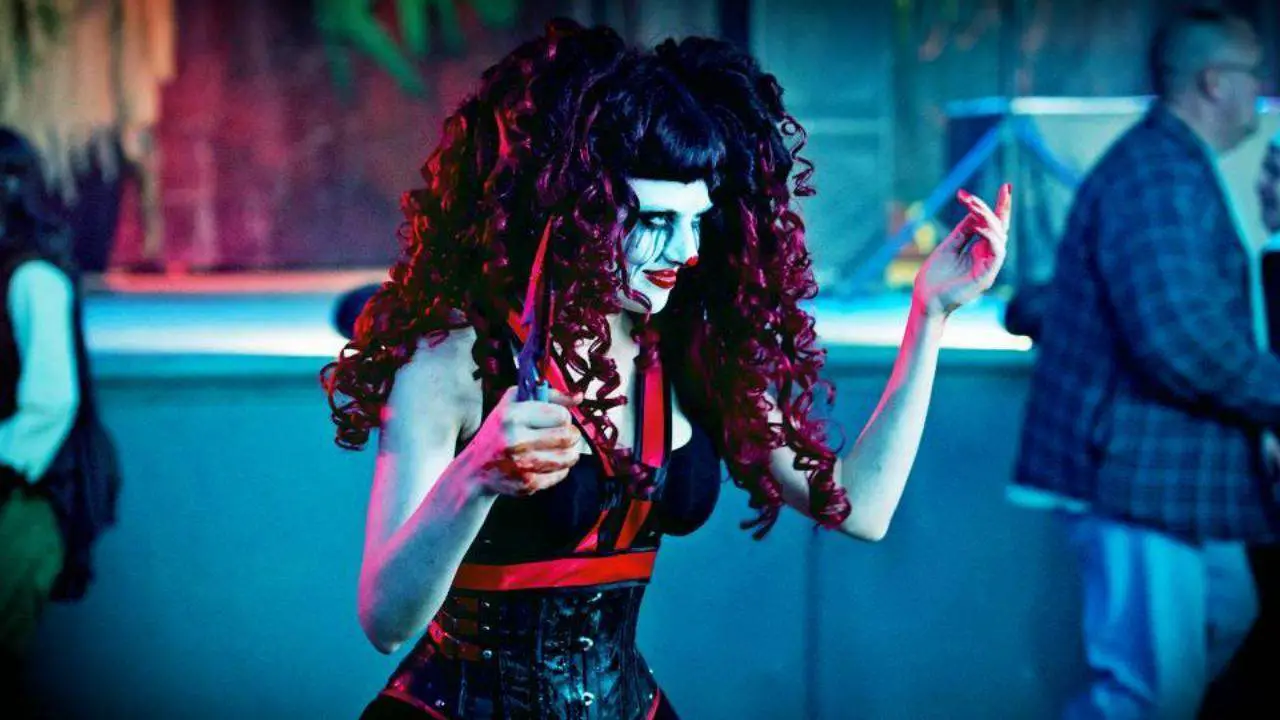Horror is evolving as a genre. Although your local multiplex is still loaded with the usual contenders, look a bit closer and you’ll find the latest drama, thriller, or crime offering is closer to horror than you might expect. In this bi-weekly series, Joey Keogh presents a film not generally classified as horror and argues why it exhibits the qualities of a great flight flick, and therefore deserves the attention of fans as an example of Not Quite Horror. This week, it’s twisted family drama Stoker.
Celebrated Korean filmmaker Chan-wook Park (Oldboy) doesn’t pull any punches with his first English language feature, Stoker, a controlled, twisted family portrait that’s bursting at its perfect seams with intrigue and mystery. This is about as close to horror as Not Quite Horror gets, wrapped up in a gorgeous package with a yellow ribbon on top.
Mia Wasikowska, who would go on to full-bore horror in Crimson Peak, stars as India, an odd-ball on the cusp of womanhood who, after losing her beloved father in an accident, finds herself developing incestuous feelings towards her mysterious uncle Charlie.
In a film where sound is of momentous, portentous significance–the crackle of an egg shell on a wooden table, the tick of a metronome, the squish of blood in a pencil sharpener–India’s whispered voice-over is the very first thing we hear. “We are not responsible for who we have come to be. Only by realising this do you become free” she intones, setting the stage for what’s to come.
Stoker is a very theatrical piece of work, Park arranging each scene in a very grand, opulent manner in keeping with the trappings of the house in which most of the (in)action takes place. Cinematographer Chung-hoon Chung, who also lensed Oldboy, utilises a palette of earthly greens and browns, complementing the theme of nature versus nurture.
Celebrated composer Clint Mansell adds to the broiling tension with a soft, murky score that alerts us to something being a bit off, without signalling what it is. It all adds up to a very strange, almost ethereal landscape in which the characters flit in and out of focus, their machinations never quite clear.
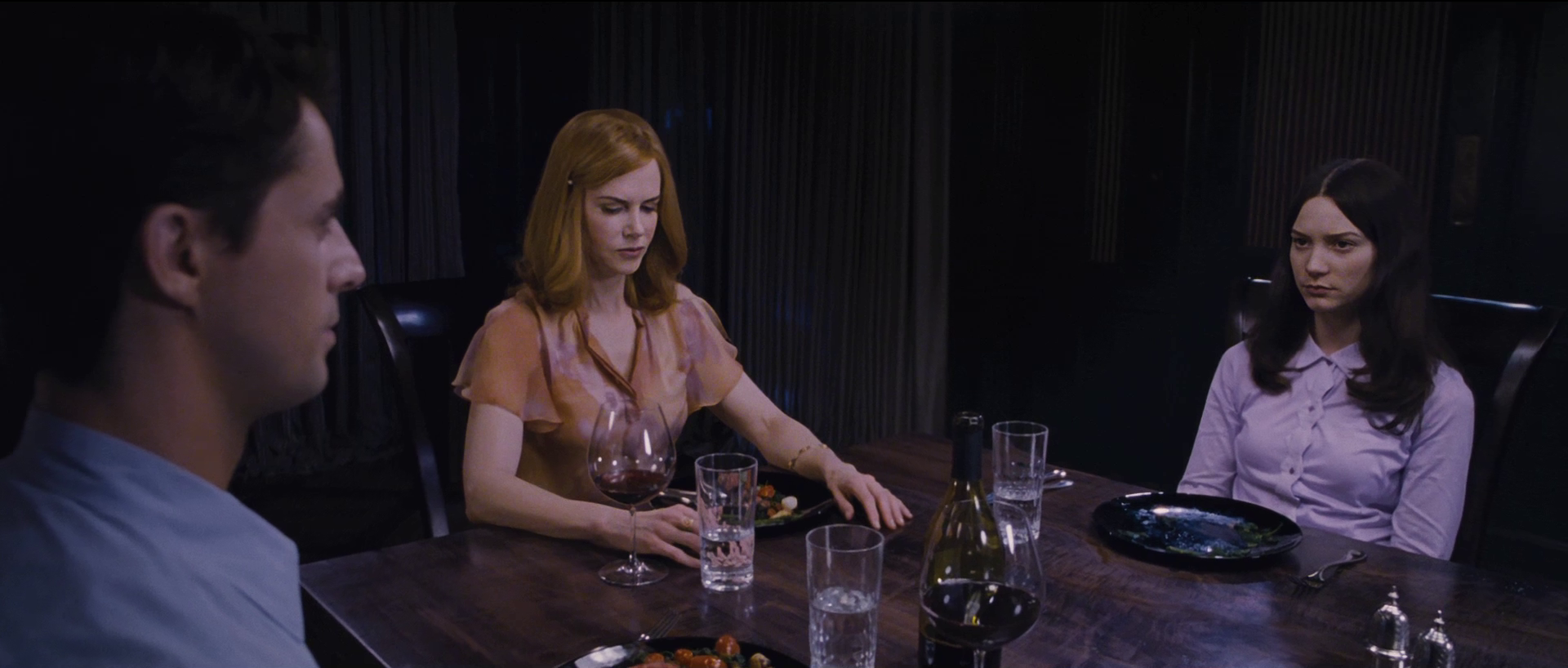
As India’s vain, self-absorbed mother, Nicole Kidman’s stiffness works to her incredible advantage. Meanwhile, British actor Matthew Goode soars in a role of which one could imagine Wasikowska’s subsequent paramour Tom Hiddleston making quick work. His Charlie is equal parts suave man about town and ruthless manipulator. Charlie’s motivations aren’t quite clear until he sickeningly tells India’s mother that she is “of age”, leading the poor woman to question him dumbly “of age for what?”
However, Stoker‘s ace card comes, once again, in the stunningly layered, graceful central performance from Wasikowska, a hugely gifted actress who shines in virtually every role be it big (Alice In Wonderland) or small (Tracks). India is an old soul, almost a Wednesday Addams character (particularly when she’s seen in school, among otherwise normal sorts) but her turning point comes in the discovery of Charlie’s misdeeds which, rather than turn her off, enamour the man to her.
Park shoots Wasikowksa in big chairs, often accentuating her youth. The film’s most shocking moment comes not with the cold-blooded murders, or the grisly discovery of a body in a freezer, but when India masturbates in the shower after her uncle has killed a man in front of her. It’s a scene the actress herself has described as “liberating” that nonetheless strikes a startling note.
This idea of India’s maturing, possibly at the hands of her uncle, is at Stoker‘s dark heart. The title may conjure up vampiric imagery, but Park is more inclined with Hitchcockian tension and ambience. The brewing hostility between mother and daughter, as their twisted love triangle reaches a crescendo, is so thick one can almost taste it.
The film is gorgeously captured, each frame aching with lies and secrecy. The incest angle is, as always, stronger for being hinted at rather than shown. The violence is explicit but not gory, a sheet of blood fizzing on the wall and a burst blister are about as far as Park takes it, the director more interested in suggestion than explanation.
And, as it stands, he wisely chooses to leave a question mark hanging above the ending of Stoker, the idea of whether or not a violent nature can be taught, or is inherent to a particular person, left ambiguous.
